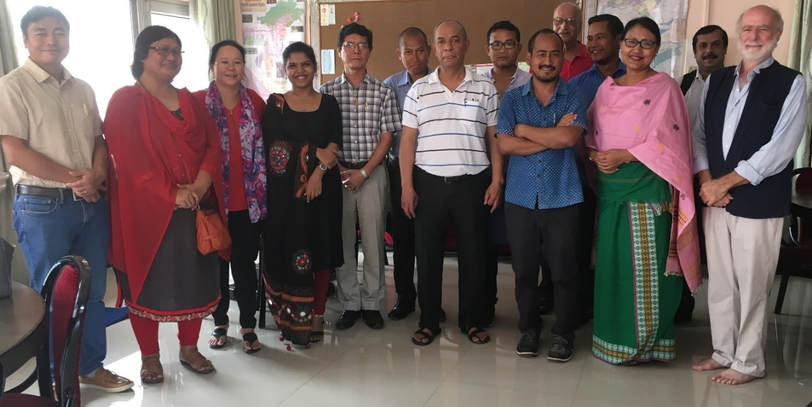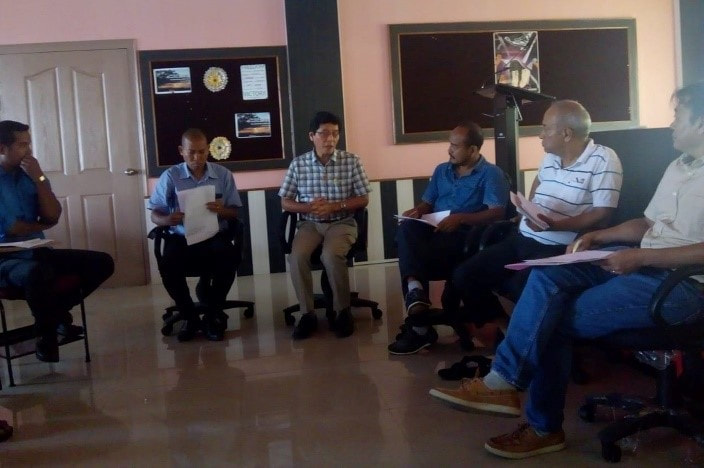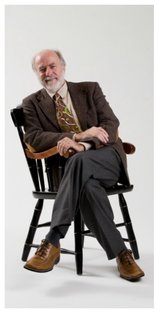All-India Indigenous-Tribal Federation
|
An organizational meeting for the All-India Indigenous-Tribal Federation (AITF) was held on Wednesday, 27 June 2018, at the North Eastern Social Research Centre in Guwahati, Assam. Delegates from ten tribes, as well as delegates who could not attend in person, drafted a mission statement and developed plans for expanding their activities throughout India.
|
Convening Committee
Yangkahao Vashum, Convenor Anjali Daimari Rosemary Dzuvichu Carl Rangad R.K. Debbarma Jones I. Kathar Shweta E. Marandi Margaret Molomoo Banjar Ch. Brahma Consultants Walter Fernandes Barry Rodrigue |
Drafted Mission Statement
The All-India Indigenous-Tribal Federation is an organization that exists to protect and promote the rights, freedom, heritage and values of the indigenous-tribal people of India. It shall be the mission of the Federation to work towards the enhancement of the quality of life of its members in all aspects, including socio-economic, cultural, political and spiritual matters. It shall be a movement rooted in the rich values of the indigenous-tribal people of India. The Federation shall have the following goals and objectives:
1. To protect and promote the rights and freedom of indigenous-tribal people in India;
2. To preserve and promote their cultures, customs, values, and traditions;
3. To protect and enhance their economic interest and life;
4. To creatively engage in promoting and enhancing their quality of life;
5. To promote the interests and well-being of indigenous-tribal people in all aspects of life.
In addition, the Federation will seek to connect with other indigenous-tribal organizations around the world, so as to enhance their effectiveness and share their experiences.
Background
|
This meeting was an outgrowth of discussions held at the Fireflies Intercultural Centre in December 2017 and the Symbiosis School for Liberal Arts in March 2018. It was proposed that formation of a national indigenous and tribal federation would benefit people throughout India. A model from which we drew is that of the Alaska Federation of Natives in the United States <http://www.nativefederation.org/>. The AFN was formed in 1966 and unifies dozens of indigenous organizations throughout Alaska and beyond. It is thought that a similar organization might be of advantage for the indigenous and tribal peoples of India. And so this meeting was called.
|
Original Organizers
The original organizers were:
Anjali Daimari is a member of the Boro community. She has led the Boro Women’s Justice Forum, which she founded; it is associated with the Asian Indigenous Women's Network. Anjali is a retired professor and has been representing her community at the UN Permanent Forum on Indigenous Issues. She may be reached at <[email protected]>.
Rhaikwchak Debbarma is a member of Debbarma community. He is a faculty member of the Tata Institute of Social Science, Guwahati Campus, Centre for Peace and Conflict Studies in Assam. RK writes especially on issues relating to space, place and politics. His e-mail contact is <[email protected]>.
Rosemary Dzuvichu is a member of the Angami community. She is Head of the Department of English at Nagaland University and former Director of its Women Studies Centre and the Centre for Mass Communication. Rosemary is also advisor to the Naga Mothers Association. She may be reached at <[email protected]>.
Carl Rangad is a member of the Khasi community. Retiring as Director of Horticulture in the Meghalaya Agriculture Department, he manages the North East Slow Food and Agrobiodiversity Society. Carl played a central role in the ‘Shillong Declaration’, which was presented at the UN Permanent Forum on Indigenous Issues in 2016. His e-mail is <[email protected]>.
Dharamsing Teron is a member of the Kabri community. He co-founded the Centre for Karbi Studies in 2013, which he directs. Elected to the Karbi Anglong Autonomous Council (1989–1996) and the Assam Legislative Assembly (2001–2006), DS edits the series, Karbi Studies, which seeks to preserve and encourage oral traditions. He may be contacted at <[email protected]>.
Yangkahao Vashum is a member of the Tangkhul community. He is Associate Professor and Head of Department at the Eastern Theological College, Jorhat, Assam. Ahao earlier served as the Dean of the Tribal Study Centre, Executive Editor of the Journal of Tribal Studies, and Dean of Post-Graduate Studies. His e-mail address is <[email protected]>.
Anjali Daimari is a member of the Boro community. She has led the Boro Women’s Justice Forum, which she founded; it is associated with the Asian Indigenous Women's Network. Anjali is a retired professor and has been representing her community at the UN Permanent Forum on Indigenous Issues. She may be reached at <[email protected]>.
Rhaikwchak Debbarma is a member of Debbarma community. He is a faculty member of the Tata Institute of Social Science, Guwahati Campus, Centre for Peace and Conflict Studies in Assam. RK writes especially on issues relating to space, place and politics. His e-mail contact is <[email protected]>.
Rosemary Dzuvichu is a member of the Angami community. She is Head of the Department of English at Nagaland University and former Director of its Women Studies Centre and the Centre for Mass Communication. Rosemary is also advisor to the Naga Mothers Association. She may be reached at <[email protected]>.
Carl Rangad is a member of the Khasi community. Retiring as Director of Horticulture in the Meghalaya Agriculture Department, he manages the North East Slow Food and Agrobiodiversity Society. Carl played a central role in the ‘Shillong Declaration’, which was presented at the UN Permanent Forum on Indigenous Issues in 2016. His e-mail is <[email protected]>.
Dharamsing Teron is a member of the Kabri community. He co-founded the Centre for Karbi Studies in 2013, which he directs. Elected to the Karbi Anglong Autonomous Council (1989–1996) and the Assam Legislative Assembly (2001–2006), DS edits the series, Karbi Studies, which seeks to preserve and encourage oral traditions. He may be contacted at <[email protected]>.
Yangkahao Vashum is a member of the Tangkhul community. He is Associate Professor and Head of Department at the Eastern Theological College, Jorhat, Assam. Ahao earlier served as the Dean of the Tribal Study Centre, Executive Editor of the Journal of Tribal Studies, and Dean of Post-Graduate Studies. His e-mail address is <[email protected]>.
Consultants
Walter Fernandes, S.J., Ph.D. is Senior Fellow of the North-Eastern Social Research Centre in Guwahati, Assam. He obtained his post-graduate degree in Philosophy from the Aloisianum in Gallarate (Italy) and his Ph.D. in Social Sciences from the Catholic University of Paris (France). A prolific scholar and publisher, his recent focus is on tribal issues in North East India. His e-address is <[email protected]>.
Barry Rodrigue, Ph.D. is Professor of Anthropology at the Symbiosis School for Liberal Arts, Symbiosis International University in Pune, Maharashtra, where he serves as Faculty-in-Charge of the SSLA Collaborative for Asian Ethnography. A metis of French / Algonquin ancestry from North America, he lived in Alaska for twenty years, working on indigenous cultural preservation and issues of social justice. His e-address is <[email protected]>.
Barry Rodrigue, Ph.D. is Professor of Anthropology at the Symbiosis School for Liberal Arts, Symbiosis International University in Pune, Maharashtra, where he serves as Faculty-in-Charge of the SSLA Collaborative for Asian Ethnography. A metis of French / Algonquin ancestry from North America, he lived in Alaska for twenty years, working on indigenous cultural preservation and issues of social justice. His e-address is <[email protected]>.
|
For more information about the AITF, please contact:
|
Photographs from Barry Rodrigue, spring and summer 2018.




